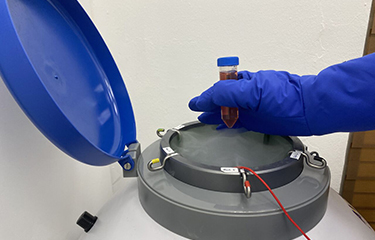SeafoodSource is closely following the plant-based and cell-based seafood alternatives market by compiling a regular round-up of updates from the sector.
- Interest in plant-based and cell-cultured seafood has increased in Japan. In response, seafood giant Maruha Nichiro has joined forces with Umami Bioworks, a Singapore-based cell-based seafood startup, according to Nikkei Asia.
Through the partnership, Maruha Nichiro hopes to commercialize cell-cultured fish products, including fish paste. It said it hopes to begin selling the first products from the partnership by 2027, though progress be dependent on obtaining regulatory approval from the Japanese government.
"We hope to increase the pace of technological development and establish mass-production technology by 2026 that can compete with the supply of commercial products,” Maruha Nichiro said.
Umami Bioworks filed a patent for cell-cultured seafood technology using mesenchymal stem fish-cell lines in October 2022, and plans to produce cell-based seafood products using snapper, tuna, and grouper cells.
- On 31 October, Nestle announced its upcoming launch of three new plant-based seafood products across Europe.
Nestle will be releasing a Marine-Style Crispy Filet analog, a Crispy Fish-Free Fingers analog, and Marine-Style Crispy Nuggets, according to Food Dive. The nuggets have already been launched in Asia. All of the products are to be under the Garden Gourmet brand.
“These new fish alternatives are the result of our deep expertise in plant-based proteins and our strong commitment to continue delivering exciting innovations,” Nestle Research and Development Head Torsten Pohl said. “They come with strong nutritional credentials, making them competitive in the marketplace.”
-BluNalu, a cell-based seafood company headquartered in San Diego, California U.S.A., has signed a memorandium of understanding (MoU) with NEOM, the Saudi Arabia-based sustainable regional development agency.
The partnership includes a USD 20 million (EUR 19 million) investment in BluNalu to help it expand and continue its commercialization of cell-based seafood.
"Our investment in BlueNalu goes beyond mere financial backing; it marks a pivotal moment in our commitment to fostering sustainable regenerative aquaculture and resilient food ecosystems," NEOM CEO Majid Mufti said in a release. "By aligning NEOM Food with BlueNalu's trailblazing approach, we're not just envisioning a sustainable future – we're investing in the transformative technologies that make it achievable. This is yet another demonstration of how NEOM Investment Fund serves as a cornerstone in actualizing NEOM's overarching vision."
BluNalu CEO and president Lou Cooperhouse called the MoU "a monumental step towards creating a more secure and accessible supply of seafood" in Saudi Arabia.
"By combining our global expertise in cell-cultured seafood and the tremendous number of strategic partnerships we’ve developed to date at BlueNalu, together with NEOM's extraordinary vision and resources, we can accelerate the development of innovative, renewable food solutions via cell-cultured seafood," he said.
- Plant-based seafood start-up Iceland Loki Foods has been selected as one of a dozen Icelandic food innovation grant recipients by food supplier Hagar. The winners received a cumulative total of ISK 15 million (USD 108,000, EUR 102,000) in grants.
Headquartered in Reykjavik, Loki Foods is developing a whole-cut plant-based cod fillet analog.
“Within the corporate ethos of Loki Foods, we express sincere gratitude for this esteemed opportunity to contribute meaningfully to the ongoing evolution of the Icelandic food sector alongside visionary entrepreneurs. Our steadfast commitment to meticulously crafting plant-based alternatives that authentically replicate the qualities of meat and fish seamlessly aligns with Uppsprettan strategic emphasis on sustainability and bolstering local production,” the company said in a LinkedIn statement.
Photo courtesy of Umami Bioworks/LinkedIn







